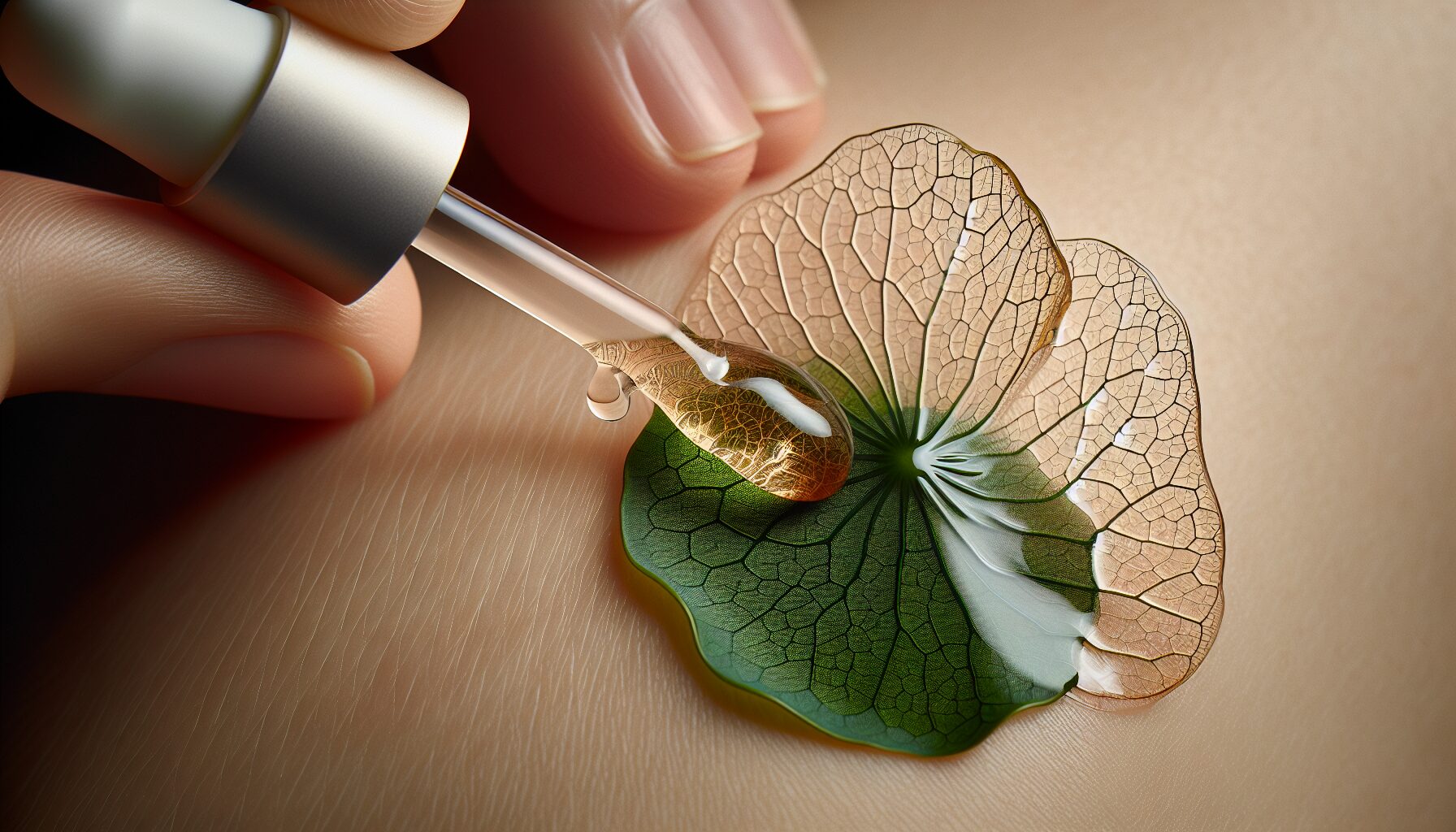
Nuciferine Benefits For Skin And Overall Wellbeing
Nuciferine, a compound found in lotus plant extracts, has been recently researched for its potential benefits as a health promoting molecule. This compound is one of the main compounds found in lotus leaves and is used in Eastern medicines. Lotus leaf can be used for weight loss in some traditional medicines.
Nuciferine is widely thought to have a broad spectrum of bioactivities and influences on our health, while modern research on this interesting compound is in its infancy. This molecule is a plant alkaloid and like other plant alkaloids may have systemic antioxidant effects on the body. These properties would make it an ideal candidate for use in natural cosmetic products.
Initial research suggests that nuciferine isolated from lotus flower extracts may have a calming effect on our body. Researchers have identified nuciferine as being capable of activating intense inflammatory lowering responses or pathways within the body. This would have additional implications in oxidative stress related diseases, including diabetes and cardiovascular or heart health diseases.
Here the potential benefits of nuciferine will be considered, with regard to how nuciferine benefits skin health.

How Nuciferine May Have Benefits For Our Health
Inflammation is a natural response from the body and is initiated as a protective response against harmful stresses. Chronic inflammation however, is a marker of an accumulation of oxidative stresses or infection, which can lead to the development of chronic or systemic inflammatory diseases. Harmful stresses in chronic inflammatory diseases are ongoing, which is why these oxidative stresses can lead to tissue damage in the longer term.
With inflammation you may just be thinking about joints or knees. However, some diseases with the highest death rates, including kidney diseases, liver cirrhosis or cancers are the result of inflammatory build up over time.
Nutrients play a key role in avoiding the build up of oxidative stresses and initiation of chronic inflammatory diseases. The things we do each day require nutrients that can support recovery from oxidative stresses. This can include specific plant molecules with bioactivity, such as nuciferine, which is an alkaloid that comes from lotus extracts. They offer as means to prevention of excessive inflammation. In doing so they delaying the onset, or assist with the calming, of some inflammation associated diseases.
Lotus Leaf Nuciferine And Inflammation Suppression
Lotus leaf is often used as part of a dietary supplement or herbal tea drink in Eastern medicines, with leaf extracts possessing strong antioxidant properties. The main bioactive plant molecule within lotus leaves is thought to be nuciferine. This compound is considered to possess inflammation calming properties, that have direct and calming effects on key inflammation signalling pathways in the body.
Because of the strength of these effects, nuciferine has been reported to have tumor suppressing effects in the body. Some researchers think this compound may be as exciting as artemisinin in terms of cancer suppression potential. This is considering evidence of actions against melanoma, intestinal and lung cancers. That puts into content the inflammatory calming potential of lotus leaf and nuciferine.
Chemical analysis also confirms a free radical or antioxidant effect. This would have further positive implications for reducing inflammation and inflammation signals. Because of this, nuciferine, with its inflammatory calming effects, may be able to assist with the prevention of chronic oxidative stresses and inflammatory diseases.
In fact, studies show that nuciferine from lotus extract has pharmacological potential in treating inflammatory caused diseases of the kidney, circulation system and also diabetes. That is most likely down to the combined effect of inflammatory calming and antioxidant effects. Nuciferine also seems to be biologically safe, while showing potential in inhibiting some viruses.
The general inflammation preventative actions identified in studies with nuciferine showed a lowered risk of liver injury, improved liver recovery with elevated antioxidant action, heart muscle support and improved kidney functioning. According to one study, supplements with nuciferine could lower liver inflammation. Because of improved antioxidant levels, nuciferine could reduce intestinal inflammation too. This is a major cause of many gut diseases and is very important for our overall wellbeing.

Nuciferine And Obesity
Obesity is thought to affect one in five adults and is a key cause of inflammation in many chronic illnesses. This includes high blood pressure, arthritis and diabetes, where the inflammation contributes to oxidative stress build up. Excessive fat accumulation causes systemic chronic inflammation.
Lotus leaf has been used as an obesity preventative medicine for many years and there is a lot of research that suggests lotus compounds, such as nuciferine, can lower fat levels. Nuciferine may lower body weight, via inducing changes in fat metabolism and causing fat losses. Studies have shown this, with weight loss being observed with nuciferine use. Nuciferine has been shown to inhibit lipase and lower fat absorption. For people who are obese, this could provide a huge inflammatory lowering effect and would support overall wellbeing.
According to one study, nuciferine caused changes to gut microbes may also influence our fat metabolism and induce weight loss. This would have obesity preventative and inflammation lowering effects.
Nuciferine could assist with improving weight loss, encouraging overall feelings of wellbeing and slightly improving aesthetic appearance.
Because of inflammation calming effects and regulation of fatty acid metabolism, nuciferine has been suggest by one study to provide support in reducing risk of inflammatory diabetes. Other studies confirm this, showing that risk of diabetes could be lowered with nuciferine. This is mainly through reduced overall inflammation to pancreatic cells that are involved in insulin sensitivity.

How Nuciferine Could Improve Skin Health
Our skin is the considered by some to be the largest organ in the body, consisting of many cells that all need nutrients. The skin is subject to various external stresses every day. This includes excessive sun damage, general weathering, irritants and heavy metals in food or water. These stressors can all induce oxidative stress in the skin, causing inflammation. Accumulation of stresses leads to skin ageing, with harmful compounds capable of changing skin collagen fibres.
This is how the inflammation calming alkaloid nuciferine, or lotus extracts, could have benefits for skin health. If included in a topical cosmetic product, nuciferine could stimulate antioxidant responses to environmental oxidative stresses to the skin, reducing skin cell stress. This would mean topical nuciferine would have benefits in promoting healthy skin protein production, offering metabolic support, that could influence skin to look more youthful or aesthetically better. This activity from nuciferine would have benefits for skin healing and skin health.
Certain studies have also found that nuciferine could have skin cancer suppressing effects, which is not surprising. Nuciferine may improve cell rendering, or autophagy, to reduce unusual or cancer causing cell growth, while supressing genes related to skin cancer development.
Nuciferine has been shown to have oxidative stress lowering effects in the gut, while promoting healthy gut diversity. This in itself lowers systemic inflammation, while the lipid managing properties of nuciferine also lower systemic inflammation. Both of these effects could improve skin health. Especially changes in gut microbe diversity, which are highly linked to inflammatory skin diseases such as eczema or acne.

Summary
Nuciferine is a breakthrough plant compound that could have various benefits for our health. This compound has been known in Eastern medicines for a while as key bioactive compound in lotus leaves. Inflammatory calming and antioxidant effects of nuciferine give it potential in cosmetic or supplemental products.
While inflammation a natural response it can be a marker of stress, with chronic oxidative stress leading to chronic inflammatory diseases. Studies have shown that nuciferine can activate inflammatory calming pathways and possibly reduce cancerous growths.
Nuciferine from lotus extracts has potential to improve kidney function, liver recovery and intestinal inflammation, partly through elevated antioxidant action. Lotus is used as a fat lowering medicine, with nuciferine also having fat preventative actions.
Obesity is a big cause of inflammation, so could help to lower inflammation and risks of diseases such as diabetes or high blood pressure. Nuciferine antioxidant effects and improvements in gut microbe diversity could also lower inflammation in the body, while also improving skin health. This could improve the visual appearance of the skin and help with skin healing.
Nuciferine has been shown to have potential inflammation reducing and antioxidant effects on the body, which could offer health benefits for various organs.
For more interesting articles, see the main articles page.





